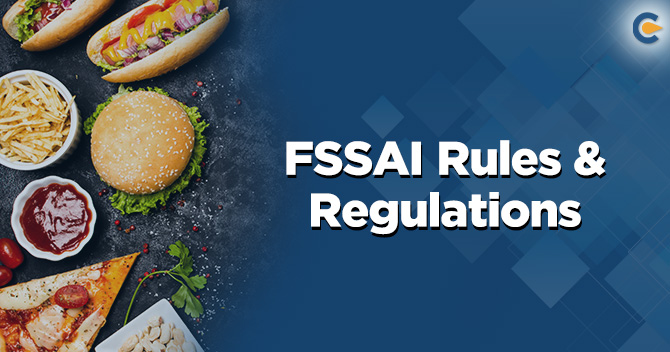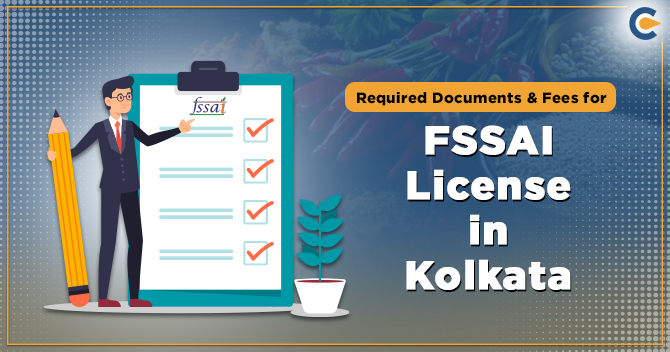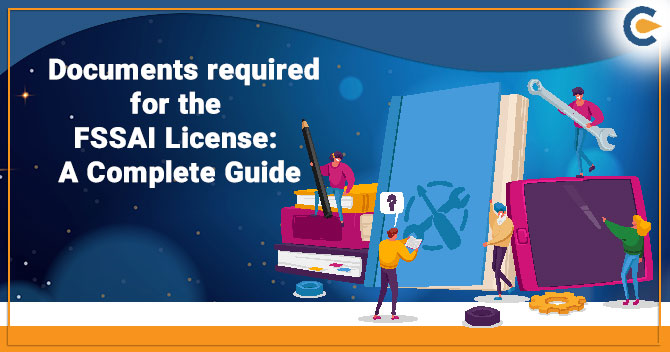FSSAI stands for the Food Safety and Standards Authority of India. It is an autonomous body established under the Ministry of Health & Family Welfare, Government of India and regulated by the Food Safety and Standards Act, 2006 which is a consolidating statute related to food safety and regulation in India.
Under this authority, the license issued to those who are doing food business.
Why FSSAI came into existence?
- To promote public health.
- To spread awareness about food safety and nutrition in India.
- To ensure the compliance of rules and regulations framed by the authority.
- To check the quality of the food.
- To enforce the standards notified.
FSSAI Rules and Regulations
As per Section 92 (1) of the Food Safety and Standards Act, 2006
FSSAI has six principal regulations which have been notified in the Gazette of India on 1st August 2011 and came into force on 5th August 2011.
The Food Safety and Standards (Licensing and Registration of Food Businesses) Regulations, 2011
Under this regulation, the online procedure is introduced to apply for FSSAI License.
Link to apply for FSSAI license: – https://foodlicensing.fssai.gov.in/
- By clicking the above-stated link, an online application will be filled.
- Create the login credential.
- Login and fill the required information.
- Prerequisite documents will be attached to the application.
- The license can be applied for the minimum period of 1 year and a maximum period of 5 years.
- Payment
- Upload Form-A (in case of basic registration and Form-B (in case of state and central registration.)
- If the department finds any insufficiency, then the application will be sent for editing.
- Inspection can also be conducted by Food Safety Officer after the submission of online application.
- Issuance of license.
- Once the license is expired, it can’t be renewed. So, it should be renewed at least one month before the expiry otherwise penalty of Rs. 100/- per day shall be charged in the month prior to the expiry date.
Essential Documents Required
- Proprietor- in case of sole proprietor,
- Aadhar card and pan card of the applicant
- partners -in case of partnership firm or Limited Liability Partnership Firm,
- directors -in case of Company
- Proof of possession(utility bill /sale deed/rent agreement/leave and license agreement)
- Photograph of the applicant( only in basic registration)
- Partnership deed (in case of partnership firm), Certificate of incorporation, Memorandum of Association and Article of association (in case of a company)
- Declaration regarding the Food Safety Management System (signed by the applicant)
- List of food (bearing the food category code) (Note-1)
- Self -declaration (in case of sole proprietorship firm) (signed by the applicant)
- General declaration (signed by the applicant)
- Recall plan (mutatis mutandis)
- Water analysis Report
- List of machinery(mentioning name, installation capacity and horsepower of each and every machinery, in case of manufacturer/repacker/relabeller)
- Photograph of premises (in case of manufacturer/repacker/relabeller)
- Blueprint (in case of manufacturer/repacker/relabeller)
- Form-IX (signed by the person in charge and applicant) with the resolution
- NOC and license of the manufacturer (in repacker/relabeller)
- Photographs of vehicles (in case of the transporter)
- List of vehicles (mentioning the name and RC No. of each and every vehicle, in case of the transporter)
- Certificate by Ministry of Tourism (in case of three-star or above hotels)
- Only the soft copy of the license bearing the license number and details of the business will be available on the registered email id.
The Food Safety and Standards (Prohibition and Restrictions on Sales) Regulations, 2011
- Prohibition of certain admixtures
- Milk which contains any added water;
- Ghee which contains any added matter not exclusively derived from milk fat;
- Skimmed milk as milk;
- A mixture of two or more edible oils;
- Vanaspati ghee;
- Turmeric containing any foreign substance;
- A mixture of coffee and any other substance except chicory;
- Dahi or curd not prepared from boiled, pasteurized or sterilized milk;
- Milk or a milk product specified in Food Safety and Standards
- Restriction on the use of certain ingredients
- Kesari gram and its products.
- Kesari dal and its products.
- Kesari dal flour and its products.
- A mixture of Kesari gram and Bengal-gram or any other gram.
- A mixture of Kesari dal and Bengal-gram dal or any other dal.
- A mixture of Kesari dal flour and Bengal-gram flour or any other flour.
- Prohibition and restriction on the sale of certain products
- Sale of food articles coated with mineral oil, Carbia Callosa and Honeydew is prohibited
- The product which is injurious to health is prohibited
- Use of carbide gas in the ripening of fruits is prohibited
- Sale of Fresh Fruits and Vegetables
- Prohibition on sale or use for the sale of admixtures of ghee or butter
- Condition for sale of flavoured tea
- Restriction on sale of Til Oil produced in Tripura, Assam and West Bengal common salt, Kangra tea
- Prohibition on use of the flesh of naturally dead animals or fowls.
- Restrictions relating to conditions for sale
The Food Safety and Standards (Packaging and Labelling) Regulations, 2011
PACKAGING:
- Packaging material should not be unfit for human consumption
- Containers which are made by plastic material should conform to the Indian Standards Specification
- General packaging (securely packed and sealed, free from leaks, major dents, rust, perforations and seam distortion )should be there for canned products
- Product Specific Requirements for various products such as milk and milk products, edible oil/fat, fruits and vegetable products, canned meat products, drinking water (both packaged and mineral water)
LABELLING:
- Every packaged food shall carry a label containing the information which shall be in English, Hindi in Devnagri script.
- Information on the label shouldn’t be false, misleading or deceptive.
- Contents on the label shall be clear and readily legible by the consume
Read our article:Who needs FSSAI Registration? Is FSSAI Registration Mandatory?
The Food Safety and Standards (Laboratory and Sample Analysis) Regulations, 2011
Notified laboratory-such laboratory notified by the Food Authority.
Referral laboratory-such laboratory established and/or recognized by the Food Authority.
Functions of the referral laboratory;-
- Analyze the sample of food
- Fix the standard of any article of food
- Comply with the high professional standards and discipline in relation to the food
- Follow the scientific protocol for testing the article of food.
- Provide the professional training, workshops and seminars for the food analyst.
After analysis or test, certificate, signed by the director, shall be issued by the laboratory.
The Food Safety and Standards (Food Products Standards and Food Additives) Regulations, 2011
If there is variation in the standard of the food product with any of the provision of this act, then Food Business operator shall comply with the provision within the period of six months from the date of the commencement of the regulations
Under this regulation, the standard is provided for the following products
- Dairy products
- Fats and oils, and fat emulsions
- Edible ices, including sorbet
- Fruits and vegetables, seaweeds, and nuts and seeds
- Confectionery
- Cereals and cereal products, derived from cereal grains, from roots and tubers, pulses, legumes
- Bakery products
- Meat and meat products, including poultry and game
- Fish and fish products, including molluscs, crustaceans, and echinoderm
- Eggs and egg products
- Sweeteners, including honey
- Salts, spices, soups, sauces, salads and protein products
- Foodstuffs intended for particular nutritional use
- Beverages, excluding dairy product
- Ready-to-eat savouries
- Prepared Foods / Composite Food
- Substances added to food- This category includes Food additives, Food enzymes, Food flavourings, Processing Aids, Nutrients like Vitamins, Minerals, Amino Acids, Fatty Acids, Nucleotides etc., microbial preparations and ingredients of functional nature. These can be in any combination and in any form such as premixes, preparations, compounds, mixes etc
The Food Safety and Standards (Contaminants, Toxins and Residues) Regulations, 2011
The contaminants-poisonous substance that makes the food articles adulterated.
- Crop containment
- Metal containment
Toxins– a poison produced by or derived from microorganisms.
Residues- a substance that remains after the main part has gone, taken or used.
- No article of food shall contain any metal in excess of the quantity specified in this regulation.
- Ensures that there will be no adulteration that will put danger to human life.
- Assure that food is acceptable for human consumption.
- Check the level of toxin in the article of food.
- Inspect that the level of antibiotics in seafood shall not exceed the prescribed tolerance limit.
CONCLUSION
FSAAI has become the guiding principle for the food sector in India. A customer’s perception is the reality, and FSSAI iron-willed that perception in respect of the food product or business in possession of food license.Moreover, it infuses the reliability among the customers and alleviates the value of the businesses having the food license.
Read our article: Enforcement of the FSS ACT – An Overview











